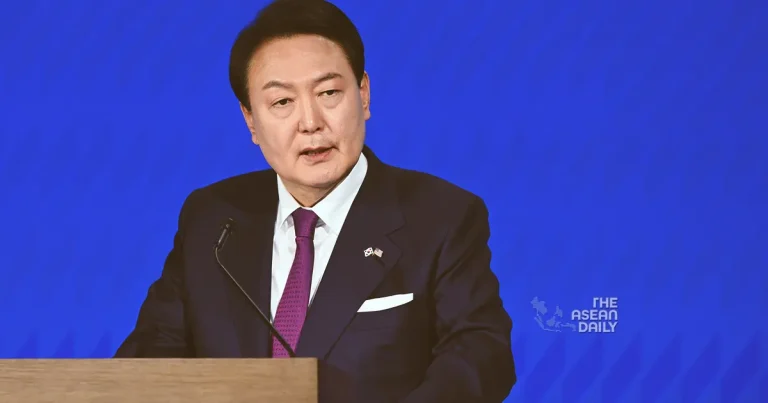26-1-2025 (SEOUL) South Korean prosecutors have formally indicted suspended President Yoon Suk Yeol on rebellion charges stemming from his controversial martial law declaration last month, marking an unprecedented development in the nation’s democratic history.
The Seoul Central District Prosecutors’ Office filed the indictment on Sunday, focusing on Yoon’s December 3rd decree that effectively attempted to suspend civilian rule and triggered the worst constitutional crisis since the country’s democratisation in the 1980s.
The indictment follows Yoon’s arrest and impeachment by the National Assembly, leaving South Korea’s political establishment in unprecedented turmoil. The Constitutional Court is currently weighing whether to permanently remove him from office or allow his return to the presidency.
At the heart of the controversy lies Yoon’s decree, which prosecutors argue exceeded his constitutional authority. The conservative leader had justified the martial law declaration as a necessary measure against what he termed a “rogue parliament”, claiming the liberal-dominated National Assembly was undermining national security through systematic obstruction of his administration’s policies.
During his televised announcement of martial law, Yoon sparked further controversy by launching a blistering attack on his political opponents, characterising the National Assembly as “a den of criminals” and pledging to purge what he described as “shameless North Korea followers and anti-state forces” from positions of influence.
Legal experts note that this marks the first time in South Korean history that a sitting president has faced criminal charges for declaring martial law. The case has raised fundamental questions about the balance of power between South Korea’s executive and legislative branches.
The prosecution’s decision to proceed with the indictment despite Yoon’s presidential immunity highlights the gravity of the charges. Yoon has consistently maintained his innocence, arguing that his actions were within his constitutional rights as commander-in-chief and necessary for national security.




